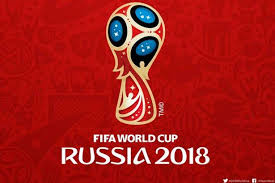October 15 – Spartak Moscow, already playing in a new stadium (the Otkritie Arena) that has been built for 2018 Russia World Cup, is to also get a new training base in Tushine at a cost of RUB1 billion ($16 million), according to the club’s owner Leonid Fedun.
The 2,500sq.m. new base will have three fields and a four star hotel and will become the hub for all of Spartak’s sports teams. At the 2018 World Cup it will become the training base for two teams will be able to train there.
Fedun said that the new base, five minutes from the Okritie, will make travelling much easier than from the current base in Tarasovka, recalling how the team once had to get to a Champions League match using the metro.
Russian sports minister Vitaly Mutko said that the base would be completed by April 2017, and that of the 64 bases are needed for the 2018 World Cup, so far 60 have been identified and are either ready or are being prepared.
A key part of the infrastructure for 2018 has been the development of transport links in Russia. The ministry of transport of Tatarstan has said that about RUB800 million will be allocated for the reconstruction of the Begishevo international airport. Although located 250km from Kazan, the airport is seen as an alternative travel option for connection to World Cup matches.
Beer back on tap
One area of contention for Russian World Cup organisers has been the ban on alcohol sales at stadia that is currently in existence in Russia. FIFA insists that for its competition beer (and particularly its sponsor’s beer) must be available in stadia.
Mutko says that the current plans include the sale of beer in the stadiums but that a law change will be required.
“During the 2018 World Cup, an exception will be made as enshrined by law. In my opinion, we are approaching such possibility. Right now we can completely calmly think about returning the sale of beer to stadiums, which are modern sport sports facilities. We need to do so that it would be comfortable for the fans. In parallel, the sale of beer brings additional income to the organisers. But the decision about returning the sale of beer to the stadiums has to be taken by the lawmakers of the country,” Mutko told Russian news agency Tass.
Contact the writer of this story at moc.l1735218298labto1735218298ofdlr1735218298owedi1735218298sni@n1735218298osloh1735218298cin.l1735218298uap1735218298

